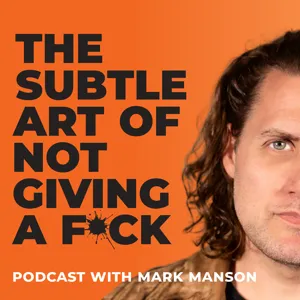Podcast Summary
Building Connections in Communities: Neighbor to Neighbor and Beyond the Scenes: Forging meaningful relationships with neighbors and open conversations about racial identity are crucial for social growth and disaster preparedness.
Building connections within communities, especially in uncertain times, is essential for social growth and disaster preparedness. Neighbor to Neighbor, a California volunteer network, emphasizes the importance of forging meaningful relationships with neighbors. Meanwhile, in a different context, the Beyond the Scenes podcast explores the experiences of individuals adopted by parents of a different race, highlighting the challenges of growing up in racial isolation and the importance of open dialogue about racial identity. Nicole Chung and Rebecca Carroll, both adopted and raised by white parents, share their experiences of feeling out of place in predominantly white communities and encountering racism at a young age. Despite these challenges, they emphasize the importance of open conversations about race and identity in fostering a more connected and inclusive society.
Historical racism in America impacting transracial adoptions: Adoptive parents need to be prepared for and understand the racism their transracial adoptees may face, and validate their experiences to promote healthy development.
The historical context of racism in America and the way it has influenced the adoption process has led to unpreparedness and lack of understanding among adoptive parents, particularly in transracial adoptions. The speaker's experiences illustrate this, as they grew up feeling loved and accepted in their families but faced racism and prejudice outside of their homes. Adoptive parents were not equipped to handle or understand the racism their children faced, leading to a lack of support and validation for the children. The use of language like "lucky," "gift," and "gratitude" in discussing adoption can also downplay the complexities and challenges of the experience for adoptees. The color-blind approach to adoption can do a disservice to children by ignoring the realities of racism and the importance of cultural understanding and validation.
Learning and challenging systems of oppression in transracial families: Adoptive families need resources, awareness, and a commitment to engage with community, culture, and experiences of people of color to create an inclusive environment for their adopted children of color.
Adoptive families creating transracial homes have a significant responsibility to learn, educate themselves, and challenge systems of oppression. The speaker shared her experience of feeling unsupported and misunderstood when trying to discuss racial issues with her adoptive family as a child. She believes that without adequate resources and awareness, well-intentioned families may fail to provide a safe and inclusive environment for their adopted children of color. It's crucial for adoptive families to engage with their community, culture, and the experiences of people of color to create an environment that affirms and validates their child's identity. This work requires a commitment beyond good intentions and a willingness to step out of one's privilege and comfort zone.
Exploring the experiences of children of color in white communities: Introspection, acknowledgement, and representation are crucial for children of color growing up in predominantly white communities to heal and connect with their culture and identity.
Understanding and centering the experiences of children of color in predominantly white communities requires introspection and active effort. This involves questioning one's own environment, considering what it would be like to grow up as a child of color, and acknowledging the potential disconnect between one's formative years and one's own culture. Many individuals, especially those raised in white-centered environments, have experienced feelings of not belonging or not being "enough," leading to a complex and paradoxical sense of grief and reconciliation. These experiences can leave lasting scars, but taking the first steps out into the world and recognizing the distance between one's upbringing and the rest of society can help in the process of healing and reconnection. Additionally, the lack of representation on television and in media for children of color, especially for Asian children, can further exacerbate these feelings of disconnect and otherness.
Exploring one's heritage: A journey of discovery and complexity: Reconnecting with one's heritage is a meaningful journey filled with questions, challenges, and rewards. It's about gaining a deeper understanding of where you come from and building connections with your community.
Reconnecting with one's heritage is a lifelong journey filled with discoveries and complications. The speakers in this conversation shared their personal experiences of seeking out their roots and the significance of these connections. For one speaker, this meant searching for her birth family as an adult and reconnecting with her Korean heritage. For another, it meant immersing herself in her black community and raising a black son. Both speakers emphasized the importance of asking questions and gaining a deeper understanding of where they came from, despite the challenges that came with it. Their stories illustrate the profound impact of reconnecting with one's heritage and the value of building community and understanding.
Early experiences shape our perspectives: Understanding the impact of early experiences on individuals' perspectives is crucial for promoting equality and acknowledging societal narratives surrounding race and identity.
The experience of being marginalized and perceived through a lens other than one's own starts from a young age and shapes our understanding of the world around us. Rebecca's upbringing surrounded by whiteness made her hyper-qualified to speak about the white gaze and its impact on individuals. Meanwhile, Nicole's experience of being adopted led her to confront the complexities of her identity and the societal narratives surrounding adoption. Both women's experiences demonstrate how early experiences shape our perspectives and the importance of acknowledging and discussing these issues to promote understanding and equality. Their books, "Surviving the White Gays" and "All You Can Ever Know," respectively, offer valuable insights into their experiences and the ongoing conversation about race and identity.
Transracial adoption experiences: dealing with identity and expectations: Transracial adoptees face complex identity issues and weighted expectations, sharing stories can be empowering, reactions vary, representation and understanding are crucial.
The experience of being a transracial adoptee involves dealing with weighted expectations and questions about identity from a young age, which can lead to a complex and complicated relationship with one's story. Sharing these stories, including the difficult parts, can be empowering and affirming for adoptees and help bridge the gap for understanding within the adoption community. However, the reaction from biological families and the larger world can vary greatly, and the decision to share one's story must be made with careful consideration. The need for representation and understanding of transracial adoptee experiences is a critical and deeply moving aspect of this journey.
Exploring the complexities of transracial adoption: Transracial adoption brings unique challenges and joys, with complex emotional experiences for adoptees. It's essential to educate ourselves, challenge stereotypes, and create supportive environments.
The experience of transracial adoption is complex and multifaceted, with unique challenges and joys. Rebecca shared her personal journey of discovering her biological parents and the emotional complexities that came with it. She was manipulated by her white birth mother and felt an overwhelming connection with her black birth father. The systemic barriers and racial biases that impacted her birth father's ability to fight for her were also evident. Unfortunately, the media often perpetuates negative stereotypes about adoption, which can further complicate matters. It's crucial for individuals and families to educate themselves about the realities of transracial adoption and work to create supportive, inclusive environments. By sharing their stories and raising awareness, authors like Rebecca and Nicole are helping to challenge these stereotypes and promote a more nuanced understanding of the issue.
Authentic and transformative adoption representations require involving adoptees: To create authentic and transformative adoption stories, it's crucial to involve adoptees in the storytelling process and recognize the diversity of experiences within the adoption community, while avoiding perpetuating harmful stereotypes.
The portrayal of adoption in media and pop culture often lacks nuance and depth, focusing on simplistic storylines that reduce the complex experiences of adoptees to one-dimensional plots. The mainstream conversation around adoption is largely dominated by the perspectives of social workers and adoptive parents, leaving the voices of adoptees themselves underrepresented. To create more authentic and transformative representations of adoption, it's essential to involve adoptees in the storytelling process and recognize the diversity of experiences within the adoption community. Additionally, media portrayals of adoption can perpetuate harmful stereotypes, such as the idea that adopted individuals are either untrustworthy or perfect, with no room for the complexities and challenges that come with adoption. By acknowledging the complexity of adoption stories and involving adoptees in the conversation, we can move towards more authentic and transformative representations in media and beyond.
Adoption's Mental Health Challenges: Adoption brings unique mental health challenges, including feelings of abandonment, identity issues, and potential trauma. Society's lack of open conversation about mental health can make it difficult for families to recognize and address these issues, especially for adoptees of color.
Adoption comes with unique mental health challenges, particularly around issues of abandonment and identity. Adoptees may face feelings of grief and trauma from the primal severance of being separated from their biological parents. Society's lack of open conversation about mental health can make it difficult for families to recognize and address these issues. Adoptees may experience additional challenges related to their race or ethnicity, which can further complicate their sense of self. The combination of these factors can lead to complex emotional experiences that may not be fully understood or addressed until adulthood. The speaker's personal story illustrates the lifelong impact of these challenges and the importance of open dialogue and support.
Mental health of adoptees, especially transracial ones, overlooked: Adoptees, particularly those in transracial adoptions, face unique challenges impacting mental health. System prioritizes adults' needs, leaving adoptees without necessary support.
The mental health of adoptees, particularly those in transracial adoptions, is often overlooked by the state and adoption agencies. Adoptees may face unique challenges related to identity, abandonment, and trauma, which can significantly impact their mental health as they mature. Even when adoption agencies provide resources and education for prospective parents, cultural insensitivity and lack of follow-through can hinder the adoptee's ability to receive the necessary support. The system prioritizes the needs of adults, often leaving adoptees without a voice or the resources they require to navigate their experiences. The normalization and celebration of transracial adoption in media can further perpetuate ignorance and insensitivity towards the complexities of adoptee experiences.
Commitment to decenter whiteness in transracial adoption: Adopting a transracial child requires self-reflection, uncomfortable conversations, community building, and preparing the child for their unique experiences in the world.
Adopting a transracial child involves more than just good intentions and a desire to help. It requires a genuine commitment to decenter whiteness, reflect the child's race as much as your own, and prepare them for the world they will enter. This may involve uncomfortable conversations, community building, and self-reflection before adoption. Additionally, adoptees should never feel pressured to choose between their birth and adoptive families or suppress their questions about their racial and cultural identities. Adoption is a complex process, and it's essential to approach it with a deep understanding of the challenges and responsibilities involved.
Understanding the Complexities of Adoptive Families: Recognize the validity and reality of all families involved in adoption. Adoptees should not feel pressured to choose between families, and adoptive parents should avoid replicating harmful racial dynamics, fostering inclusive and equitable environments instead.
Key takeaway from this conversation between Nicole, Rebecca, and Roy about adoption is the importance of recognizing the validity and reality of all involved families. Adoptees should not feel pressured to choose between families or love one over the other. Additionally, adoptive parents should avoid replicating harmful racial dynamics, instead fostering inclusive and equitable environments. This message, if emphasized more in Nicole and Rebecca's lives, could have helped ease some challenges they faced. Overall, this conversation underscores the significance of acknowledging the complexities and interconnectedness of various family dynamics.





